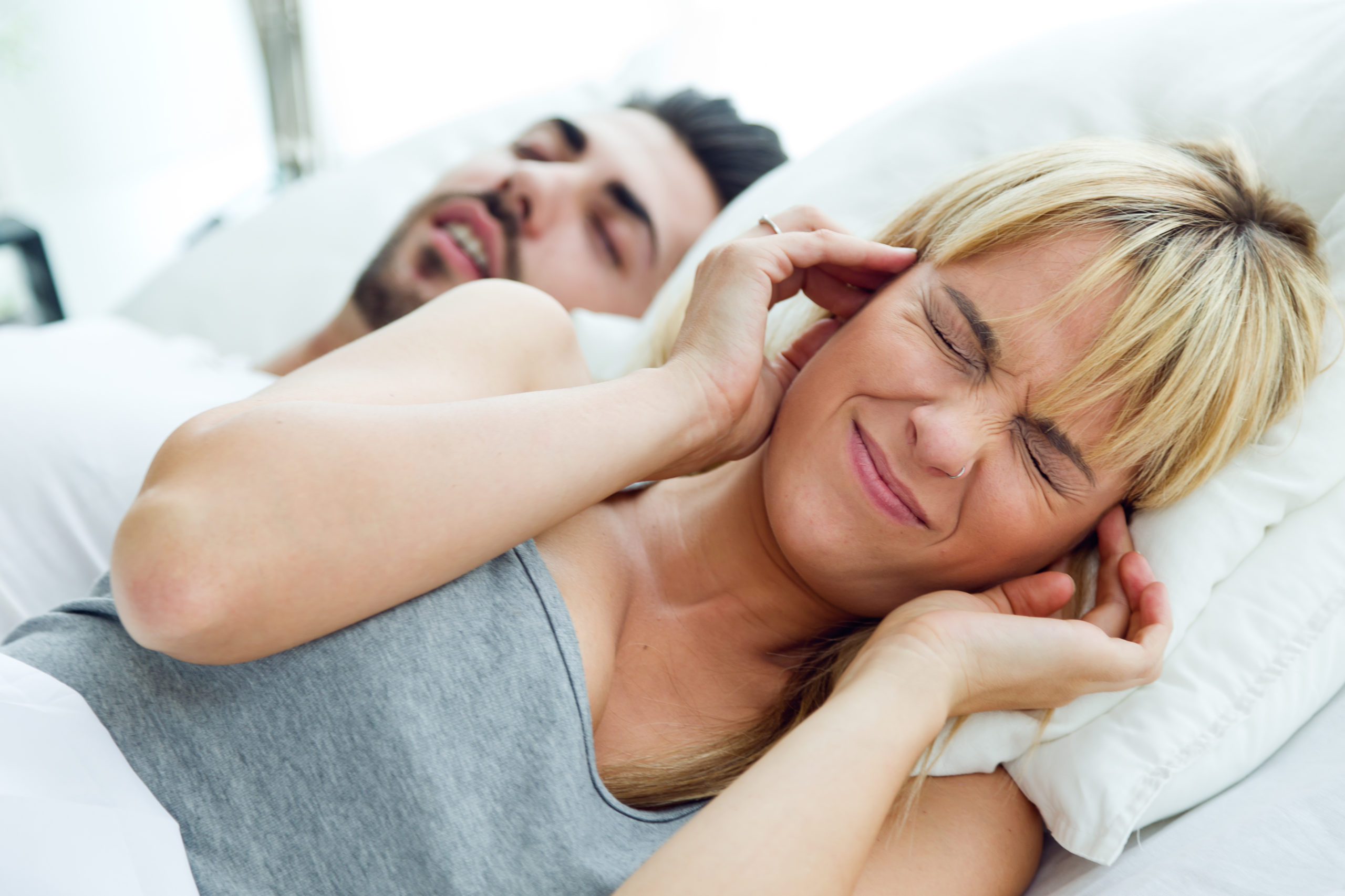
25 Mar 5 Signs That Seniors Might Have Sleep Apnea
This potentially serious condition can reveal itself in surprising ways. Here’s what elders should know.
Your whole life you’ve been told you are a snorer. But at what point could it be more than just a bad case of snoring?
Sleep apnea in older adult patients often goes undiagnosed, or is classified as merely snoring. A difficulty falling and staying asleep in conjunction with a lack of deep sleep can result in a poor quality of life and increased health risks in seniors.
Look out for these signs of sleep apnea—and talk to a healthcare provider if you spot them.
Snoring
This is a major factor, and often the one symptom that people are aware of.
All snoring can be associated with sleep apnea. However, a particularly concerning sign is pauses in snoring. Pay attention to loud snoring that gets quieter and quieter and then comes to an end with a loud snort or gasp.
With this gasp and snort, your brain is essentially saying that it can’t get enough air, so you take a breath. It doesn’t always cause an arousal, but often it’s you waking up to catch your breath. Have a partner or loved one pay attention and inform you if they see any of these snoring patterns.
You Wake Up Tired Without Reason
If you get out of bed exhausted while thinking about your opportunity to take a nap, sleep apnea might be to blame.
When your airway experiences a significant collapse, your oxygen levels drop while carbon dioxide levels subsequently increase. The brain recognizes this and sends an adrenaline rush to your body to wake you up and take a breath. Often, you’re not even aware that you’re waking up. However, it still negatively affects your sleep cycle.
Because your sleep is disrupted from these breathing events, your body’s ability to get into a deep sleep is diminished. The overall quality of sleep is not as good as if you don’t have sleep apnea. You may not be able to sleep soundly through the night nor get deep into the different stages of sleep.
Waking Up with a Sore Throat
For those experiencing difficulty breathing at night, your body can subconsciously try to fix that by opening your mouth in an attempt to collect more air.
With an open mouth, it’s going to dry out more easily. This can make your throat sore because the mouth is very dry.
Read more of our most popular posts:
–8 Innovations For Improving Lives of those with Dementia and Alzheimer’s and their Caregivers
–Tai chi and its benefits for seniors with arthritis
–Caregiving during the Coronavirus: How to Protect and Engage Seniors at Home in Philadelphia
Peeing Multiple Times a Night
Getting up to use the bathroom may be caused by sleep disruptions that stem from breathing interruptions. Sometimes people will fully wake up and realize that their bladder is full and they go to the bathroom.
There may also be a physical contributor as well. Those patients with obstructive sleep apnea tend to produce more of a protein called atrial natriuretic peptide, or ANP. This causes you to produce more urine at night.
Many patients report that they seem to have to get up many more times in the middle of the night to go to the bathroom as opposed to during the day. That’s a strong indicator that they could have untreated sleep apnea.
Waking up with a Headache
For those with sleep apnea, experiencing morning headaches is fairly common. In one study, nearly half of individuals with obstructive sleep apnea reported headaches in the morning or upon awakening, with increasing intensity as sleep apnea worsens.
These headaches that are experienced tend to cause pain on both sides of the head. They are usually described as “pressing” as opposed to “pulsating.”
There are several reasons why this happens. First, disrupted sleep by itself can often trigger a headache. Additionally, continued breathing interruptions can lower oxygen levels, also sparking a headache.
Finally, sleep apnea can lead your blood pressure to increase. This may further cause headaches.
Sleep is such an integral part of a healthy body and proper physical and mental functioning. Poor sleep can lead to many consequences, but sleep apnea is even more worrisome. By recognizing the signs and symptoms of sleep apnea, you can be better prepared to monitor the potential of sleep apnea and talk to your doctor about your concerns.
Caregiving support
For elders or loved ones that need additional support, caregivers at Chosen Family can be your partners in promoting strong health and monitoring health risks. Caregivers can evaluate seniors through a proven training program. They will provide support for activities of daily living. If you need help with assistance at home for you or your loved one, you can count on professional and quality support from Chosen Family Home Care right here in Philadelphia, Delaware, Bucks, Montgomery, and Chester counties of Pennsylvania.

No Comments